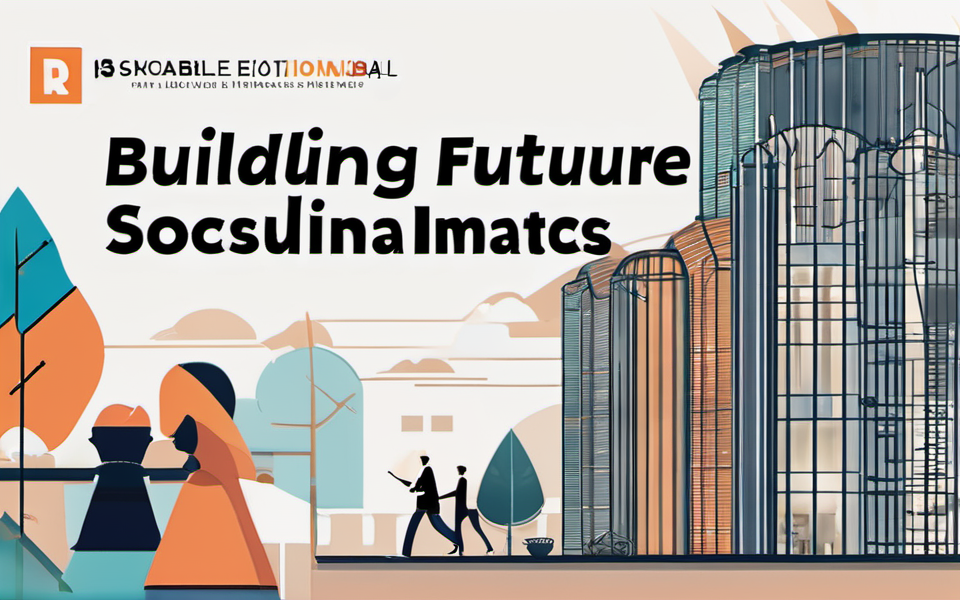Forget Everything You Think You Know About Business and Sustainability. The Future is Here, and It’s Legal.
Forget about sacrificing profits for the planet. Imagine a world where businesses thrive while promoting environmental sustainability and social good. It might sound like a pipe dream, but with the rise of innovative environmental regulations and social impact investment, this dream is becoming a reality.
The Future of Sustainable Business: A World Where Doing Good Means Doing Well
Let’s face it, the world needs a change. We’re facing the urgent consequences of climate change, social inequality, and resource depletion. But what if instead of simply hoping for change, we actually engineered it?
This is where regulatory frameworks step into the spotlight. Imagine regulations not as restrictions but as opportunities – a catalyst for innovative business models that prioritize both profits and planet.
Regulations as Catalysts for Sustainable Change
Think about it this way: Imagine a world where carbon emissions are penalized, but renewable energy sources are heavily subsidized. Suddenly, it becomes economically advantageous for companies to invest in solar panels and wind turbines. It’s not just about environmental impact; it’s about creating a sustainable economic ecosystem.
This is just the tip of the iceberg. We’re seeing a growing wave of ESG (Environmental, Social, and Governance)-focused regulations, forcing businesses to adopt transparent practices and responsible sourcing, and even invest in community initiatives.
The Impact Investment Revolution: Funding Sustainable Solutions
Impact investment is the missing puzzle piece in this sustainable future. Instead of just chasing profits, these investments focus on generating both social and environmental impact. This is about empowering businesses with the resources they need to implement sustainable solutions at scale.
Think of it like this: Impact investment is about “planting the seeds” for a better tomorrow. This can range from financing sustainable agriculture projects to funding renewable energy startups. These investments have a double benefit – generating returns for investors while creating tangible social and environmental good.
Building the Bridge Between Profits and Purpose
Sustainable business models aren’t just about ticking environmental boxes; they’re about rethinking how we approach profit. We’re not just talking about reducing our carbon footprint; we’re talking about building businesses that generate positive impact from the ground up.
Here are just a few examples:
- Circular Economy: Companies are moving away from the linear “take-make-dispose” model towards a circular economy. Imagine clothing made from recycled materials, or appliances designed to be easily repaired and repurposed. This not only reduces waste but creates new markets for sustainable products.
- Community-Based Business Models: Social enterprises are prioritizing community development, fair wages, and equitable opportunities. Imagine a coffee shop that empowers local farmers by offering them fair trade prices, or a tourism company that supports local craftspeople and conservation efforts.
- Regenerative Agriculture: Instead of focusing solely on yield, regenerative farming seeks to restore soil health, protect biodiversity, and improve water management. These sustainable practices have the potential to create more nutritious food, increase resilience to climate change, and generate economic opportunities for farmers.
The Power of Collaboration
Creating a sustainable future is not a solo effort. It requires the collaborative efforts of businesses, governments, and individuals. We need to work together to develop and implement effective environmental regulations, incentivize sustainable practices, and invest in solutions that address pressing social and environmental issues.
Building a Future that’s Both Sustainable and Profitable
The future of business isn’t just about being profitable; it’s about being purpose-driven, sustainable, and truly socially conscious. By leveraging the power of regulations and impact investment, businesses can become a force for good in the world while simultaneously driving innovation and growth.
It’s a new paradigm: Where doing good means doing well, and where profits are not just a goal, but a consequence of building a better, more sustainable future.
Key Takeaways:
- The rise of environmental regulations and impact investment presents a powerful opportunity for businesses to promote environmental sustainability and social good.
- Regulations act as catalysts for innovative business models and sustainable solutions.
- Impact investments focus on generating social and environmental returns, empowering companies to make a real difference.
- By integrating sustainable practices and collaborating with stakeholders, we can unlock the true potential of a profitable and sustainable future.









